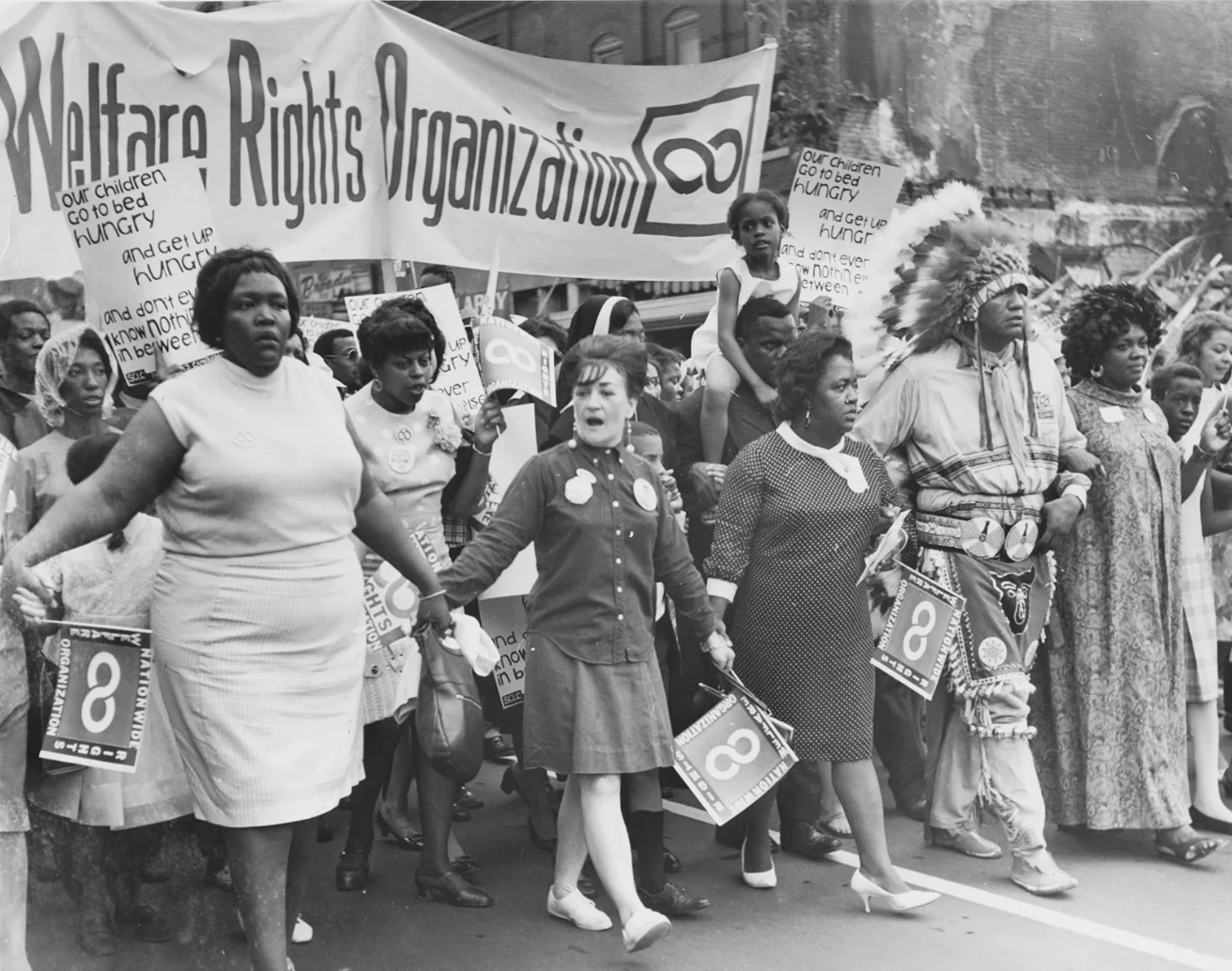One key example of advocacy opposing unequal access to food assistance is this one, an image from the Walk for Decent Welfare, led by the National Welfare Rights Organization in 1966, in Ohio.
6000 people marched 150 miles across the state, from Cleveland to Columbus, to protest new restrictions and payment caps imposed on the main cash assistance program at the time, Aid for Families with Dependent Children (AFDC).
Before the Civil Rights Act of 1964, 90% of AFDC recipients were white, single mothers, who were receiving support in order to provide for their families. But the program was inaccessible to Black families, and especially to Black single mothers. After the Civil Rights Act passed, and the program legally had to be made available to Black families, states like Ohio created new restrictions on accessing the program and imposed new, draconian caps on welfare payments, all thinly veiled attempts to block access to this and other programs for Black families.

Museum Map
WISHING
TREE
The Proof is in Our History
- 1.Welcome
- 2.Welcome
- 3.The Age of Mass Migration - Landing
- 4.The Age of Mass Migration - Main
- 5.Immigration from Europe
- 6.Early Activists
- 7.The Great Depression
- 8.Charity Is Not Enough
- 9.Hunger is No One's Fault
- 10.The New Deal
- 11.Political Compromises
- 12.An Unequal Recovery
- 13.Back Door Exclusions
- 14.Hunger, Justice, and Civil Rights - Landing
- 15.Hunger, Justice, and Civil Rights - Main
- 16.The Walk for Decent Welfare
- 17.Televising the War on Hunger - Landing
- 18.Televising the War on Hunger - Main
- 19.Hunger in America
- 20.The Great Society
- 21.Bipartisan Consensus
- 22.Nixon Works to End Hunger
- 23.The Unmaking of the Great Society - Landing
- 24.The Unmaking of the Great Society - Main
- 25.President Reagan
- 26.The Myth of the Welfare Queen
- 27.Cementing Stereotypes into Policy
- 28.A New Bipartisan Consensus
- 29.Where We Are Now - Landing
- 30.Where We Are Now - Main
- 31.The Pandemic
- 32.Patching our Safety Net
- 33.Our Wish for the Future
- 34.End tour
Welcome to the Hunger Museum, a virtual project of MAZON.